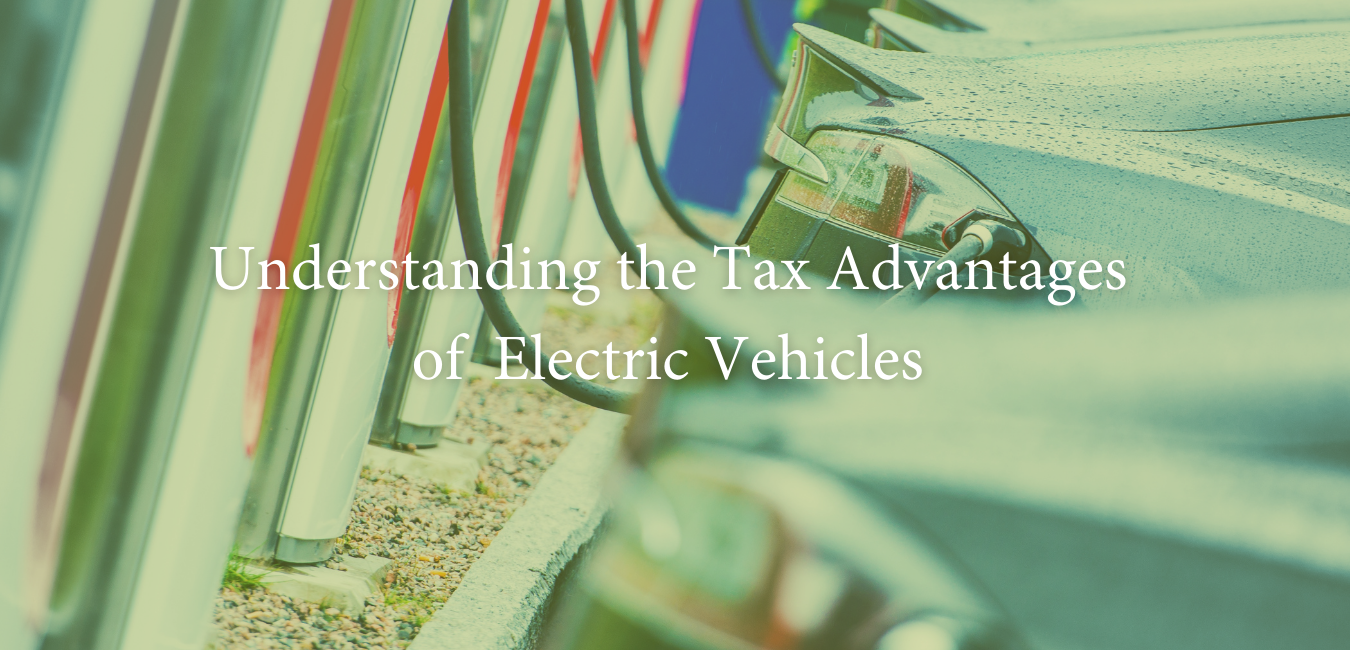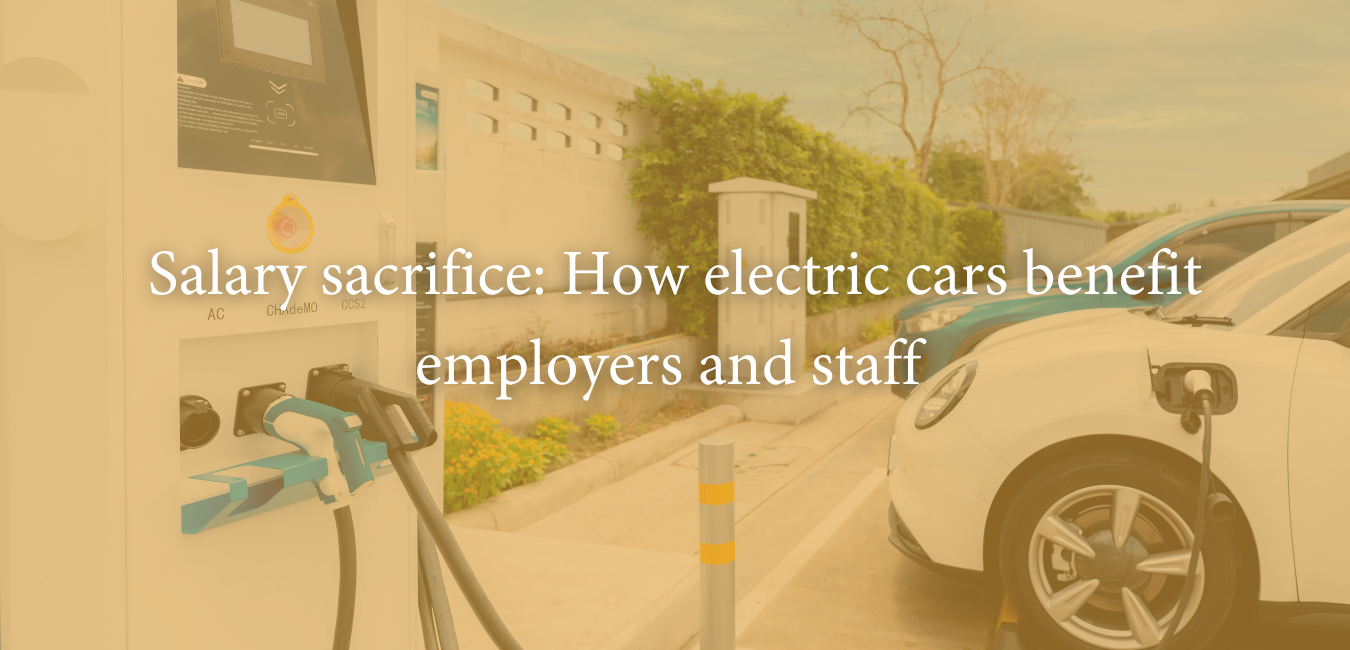Understanding the Tax Advantages of Electric Vehicles
Replacing your company vehicle with an electric vehicle offers several tax benefits that can not only reduce your costs but also help protect the environment.
As electric cars become ever more accessible and the Government offering several tax advantages for low emission vehicles, their popularity continues to grow.
We look at what the tax benefits are, and what you need to be aware of when considering an electric or low emission vehicle.
Vehicle Excise Duty (VED)
A further incentive to investing in an e-vehicle is the road tax payable (Vehicle Excise Duty – VED). The rates for all 100% electric vehicles are now £0 and this will apply until at least 2025 - as well as being exempt from the London Congestion Charge. Plug-in hybrid electric vehicles (PHEVs) have reduced rates, but some VED is payable depending on emissions.
Calculating ‘benefit in kind’ for electric cars
Firstly, the taxable ‘benefit in kind’ (BIK) of a company car is determined by the vehicle’s CO2 emissions. If your company car has CO2 emissions of 1 to 50g/km, the value of the car is based on its zero emission mileage figure, or ‘electric range’. This is the distance the car can go on electric power before its batteries need recharging.
The lowest BIK for Financial Years 2022/23, 2023/24, and 2024/25 is 2%. This rate applies to cars that emit no carbon dioxide (IE 0 g/km, or grams per kilometre), plus any plug-in hybrid cars (PHEVs) that are able to travel over 150 miles under battery power, while also emitting fewer than 50g/km of CO2 – although no PHEVs can currently do this.
How much is tax on electric company cars?
This depends on how much the car costs, how much you earn, plus a few other variables. A company car’s price is determined by its P11D value. A car’s P11D value is effectively synonymous with its list price, including VAT, options and delivery charges.
The more a car costs, the more tax you will pay, relative to the BiK percentage it attracts.
Example
Let’s say you are a 20% rate taxpayer, and choose a Fiat 500e Passion 42kW as your company car. This car has a P11D value of £27,280, and as it emits no CO2 on the road it is subject to a BiK rate of just 2%. With 2% of £27,280 being £545.60, that’s the amount of taxable benefit you receive – but you don’t pay all that, only a percentage based on your tax bracket. So if you’re a 20%-rate taxpayer, you pay 20% of £545.60, or £109.12 a year.
This is the benefit value that needs to be included on the P11D form for company cars.
To help stimulate automotive sales the government extended the 100% first year capital allowances relief post April 2021 for purchases of brand new, zero emission electric vehicles and vans. This means that subject to profits being available, the full cost of the car can be claimed in the year of purchase, with no upper restrictions to the value of the vehicle.
If you buy an electric car through the business you can offset part of the cost against your corporation tax bill. With most cars this deduction will be applied gradually over time, however with electric cars you can claim the full deduction in the year you buy it.
Salary sacrifice and e-cars
It is possible to finance an electric car through a salary sacrifice scheme, whereby the amount of benefit is valued as the higher amount of either the amount of salary given up, or the taxable benefit. This is part of the ‘optional remuneration rules’ and they only apply in situations where the company car’s CO2 emissions are greater than 75g/km. Salary sacrifice can be a good option for higher and additional rate tax payers to reduce their marginal rate of tax.
Electric vans
Investing in an electric van is highly tax efficient if you may also require it for private use. As from April 2021, there are no tax implications if you use a company owned zero-emission van outside of business hours. If you have a non-electric van and are only using it for business and commuting purposes, there is no taxable benefit in kind consideration.
Vans are subject to a 'van benefit charge'. This has been set at a flat rate of £3,500 during the 2021/22 and 2022/23 financial years for combustion-engined vans, however the rate for fully electric vans is zero.
Can you reclaim VAT on an electric vehicle?
Under current law, an electric vehicle will still be viewed as a car for VAT purposes. Therefore, if there is any private use of the car VAT is not recoverable on purchase. The VAT can however be reclaimed if the car is used 100% for business purposes, however this can be difficult to prove to HMRC.
A similar restriction also applies to leased cars. Where there is any private use of the car, only 50% of the VAT on the leasing charge can be recovered.
Full VAT recovery, subject to the usual partial exemption and business use tests, is available on ongoing maintenance of leased cars.
Vans and motorbikes are not cars so input VAT is claimable, subject to any adjustments for partial exemption and/or non-business use.
What other incentives are there for businesses to go electric?
Charging Points
If your business installs charging points for electric vehicles between now and 31 March 2023, 100% first year allowances can be claimed on the investment cost. In addition, if you allow your employees to charge electric vehicles at your workplace for free, this does not count as a taxable benefit in kind for P11D purposes. The qualifying condition is that charging facilities are located either on or near the workplace premises.
Workplace Charging Scheme
This provides 75% of the purchase and installation costs of EV charge points at a workplace, up to a maximum of of £350 per socket, and 40 sockets per site, per applicant – IE one company can get 40 grants for 40 sockets at one location, or 40 grants for 40 sockets spread over 40 locations.
Plug-in vehicle grants
Companies can also get Government grants for electric vans, trucks and taxis. These range of grants vary in size depending on the type of vehicle, with small vans eligible for a grant of up to £2,500, and large trucks getting up to £25,000 contributed by the Government.
Capital claim allowances
Electric company vehicles are also subject to favourable capital claim allowances, meaning firms can deduct more of their value from company profits for the purposes of tax calculations.
Claiming expenses for using privately owned electric cars
Employees that use their private electric vehicle for business journeys are entitled to claim an annual, tax-free mileage allowance of 45p per mile for the first 10,000 miles driven and 25p per mile for any additional miles driven.
Employees are also eligible for grants under the Electric Vehicle Homecharge Scheme. This scheme contributes 75% towards the cost of a single charge point and its installation, up to a maximum of £350 per household for any eligible vehicle.
Menu
Get In Touch
Tel: 01733 247500
Email: admin@ggmaccountancy.co.uk
Office: Unit 12, Broadway Shopping Centre
Malting Square, Yaxley, Peterborough
PE7 3JJ
Sign Up To Our Newsletter
Contact Us
We will get back to you as soon as possible
Please try again later
Proud Partners Of
Menu
Get In Touch
Tel: 01733 247500
Email: admin@ggmaccountancy.co.uk
Office: 42 Tyndall Court, Commerce Road
Lynch Wood, Peterborough, PE2 6LR
Follow Us On Social Media
Sign Up To Our Newsletter
Contact Us
We will get back to you as soon as possible
Please try again later
All Rights Reserved | GGM Accountancy Ltd | Website designed by Onelink Media









